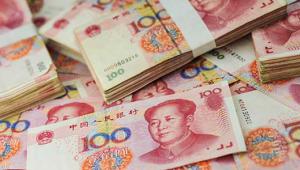The nation’s currency, also known as the renminbi, will join the dollar, euro, yen and sterling in the IMF’s special drawing rights reserve currency basket in October, meaning it will be used for IMF loans and repayments.
Officials said China has had to implement significant reforms in order to secure its inclusion, which supports its efforts to internationalise its currency and challenge the dominance of the dollar.
These reforms will have to continue once the renminbi is included, they continued, with improvements to China’s economic reporting and banking statistics, as well as enhanced transparency in its exchange rate scheme.
“Inclusion of the renminbi in the SDR basket is an important milestone in the process of China’s global financial integration,” said Siddarth Tiwari, director of the IMF’s Strategy, Policy and Review Department.
He said the inclusion recognises China’s “continuing reform efforts”, which have so far included liberalising access to onshore fixed income and foreign exchange markets for fund members.
China has also opened its domestic bond market to commercial lenders, insurance and securities firms, asset managers, hedge funds and charities, and has begun issuing sovereign renminbi bonds outside of China in further efforts to globalise its currency and capital.
Along with the IMF, the World Bank is supporting the country in these efforts. Earlier this month, it issued an SDR-denominated bond on the Chinese market, with payments to be made in renminbi.
Tiwari said the diversification of the SDR basket will make it more representative of the currencies trading in the world, and makes it more attractive and less volatile, provided the underlying currencies remain stable.
“As this integration continues and expands in other emerging markets around the globe, which will bring them more robust international monetary and financial systems, it will in turn support growth and stability of the global economy.”
Going forward, Tiwari said China will be expected to improve the reporting of its reserves composition, with full coverage within two or three years.
The nation will also work with the global financial watchdog, the Bank for International Settlements, to improve the quality of Chinese banking sector statistics.
Meanwhile, China’s monetary policy will have to be relayed through a “fair communications strategy”, Tiwari added.
“These are the responsibilities that come with being an [SDR] currency.”












